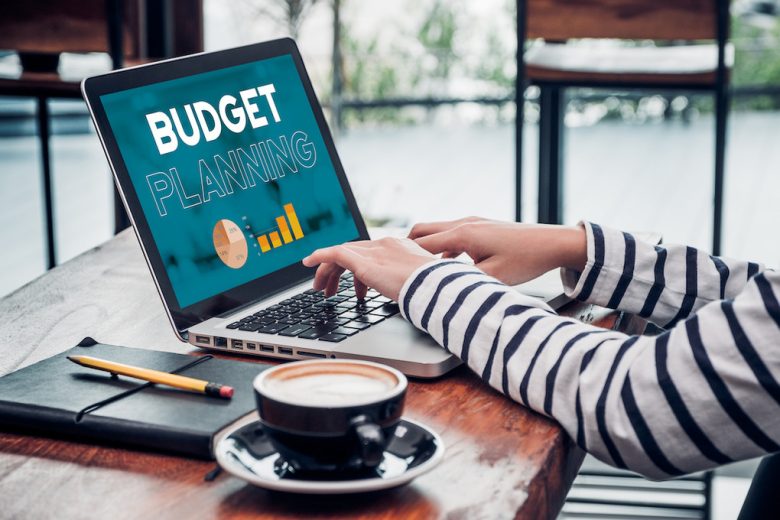Managing your finances can be challenging, especially when bills seem to grow faster than your income. Many people struggle to make ends meet simply because they don’t have a clear financial plan. That’s where a personal budget comes in: it’s designed to limit your spending and make every penny count. A well-designed budget can reduce financial stress, promote long-term stability, and give you control over your finances. Whether you want to save for a major purchase, pay off debt, or simply cut back on expenses, creating an effective budget is the first step.
In this article, we’ll cover practical methods to help you create a budget that suits your needs, ensures financial independence, and motivates you to stick to it. Ultimately, you’ll be able to create a budget that becomes more of a tool for success than a burden.
The Importance of Budgeting for Financial Success:
A budget is the cornerstone of financial success and goes far beyond cutting back on pleasures or avoiding unnecessary expenses. Without a budget, we sometimes neglect money and even spend it on things we don’t prioritize. Creating a budget is like a road map that helps you allocate your income to the things that matter most to you, like saving, paying bills, or investing for the future. A budget acts as a GPS for your financial journey, alerting you when you’re off course and guiding you toward your goals. Budgeting also reduces stress by eliminating the uncertainty that comes from worrying about whether you’ll have enough money at the end of the month. A clear plan gives you more control, empowers you to make smarter choices, and develop healthier financial habits that will benefit you for life.
How Do You Start Creating Your Budget?
A clear budget is the first step to an effective personal budget. Understanding your income is the first step. Write down all your sources of income, including your salary, part-time jobs, freelance work, and passive income. Next, consider your monthly expenses, starting with variable costs like groceries, entertainment, and dining out, and then with fixed costs like rent, electricity, and insurance. Tracking your spending for at least a month can have a significant impact on your life because it can reveal patterns you might not have noticed, such as how much money goes toward small, incremental purchases.
Once you have a complete understanding of your income and expenses, you can categorize them into necessities, wants, and savings. You can then use budgeting techniques like the 50/30/20 rule, which states that 20% of your income should go toward debt repayment or savings, 30% toward wants, and 50% toward needs. Honesty and consistency are crucial in this situation; your budget should reflect reality, not wishful thinking.
Choose the Budgeting Technique that Works Best for You:
Because there’s no one-size-fits-all budget plan, choosing the right one is crucial. Some people choose the 50/30/20 budgeting method for its simplicity and flexibility, while others prefer zero-based budgeting, where every dollar is accounted for before the beginning of the month. The envelope system, which uses actual cash envelopes to track each area of spending and stops spending when the envelope is empty, is another effective option for people who overspend on things like dining out or shopping.
Digital tools and apps can significantly simplify budgeting by automatically tracking and categorizing, saving time and effort. The ideal budget is one you can stick to long-term, so try a few strategies until you find the one that works best for you. Remember, the whole point of budgeting is to have the flexibility to spend on what really matters without feeling guilty.
Tips for Sticking to a Long-Term Budget:
Sticking to a budget is harder than creating one. Life is full of temptations; unexpected bills pop up one after another, and that’s just the way it is. A well-planned budget is essential for stability; if you cut out all your entertainment expenses, you’ll quickly run out. To avoid feeling deprived, set aside a portion for relaxation and entertainment. Reviewing your budget regularly is crucial; track your spending weekly and make small adjustments as needed. Reduce other expenses to compensate for overspending in one area.
Automating bill payments and saving is another smart strategy that can help you achieve your financial goals without relying solely on willpower. Finally, recognize and appreciate your small successes. Did you pay off your credit cards? Did you save $1,000 for an emergency fund? Give yourself a small reward. Progress, not perfection, is the goal, and financial freedom comes from long-term perseverance.
Conclusion:
Successful personal budgeting is about developing a financial plan that supports your goals, reduces stress, and gives you financial control, rather than restricting yourself. When you take the time to track your income and expenses, choose a budgeting strategy that fits your lifestyle, and adjust your plan appropriately, you’ll set yourself up for long-term success. Budgeting is dynamic and changes with your life. Regardless of how you want to begin—tracking your expenses or implementing a complex system—the most important thing is to start now. By taking control of your finances, you’ll achieve financial freedom and stability faster. Your future self will appreciate the discipline and clear planning you cultivate now, so please consider starting today.
FAQs:
1. Which budgeting technique is easiest for beginners?
The 50/30/20 rule is often recommended for beginners because of its ease of use and adaptability. This rule divides your income into needs, wants, and savings, making it simple to follow.
2. What is the recommended monthly savings amount?
Depending on your financial goals, it’s generally recommended to save at least 20% of your income. Even a consistent 5-10% saving can make a difference in the long run.
3. How can I manage fluctuating income when creating a budget?
If your income fluctuates, base your budget on your lowest monthly income and consider any extra money as additional income for paying off debt or saving.
4. Can I still enjoy life while budgeting?
Of course! Discretionary entertainment expenses should be included in your budget. The goal is to balance your spending, not limit it.
5. How often should I update my budget?
Review your spending weekly to ensure you’re on track and make small adjustments before major problems arise, but review your budget at least monthly.



